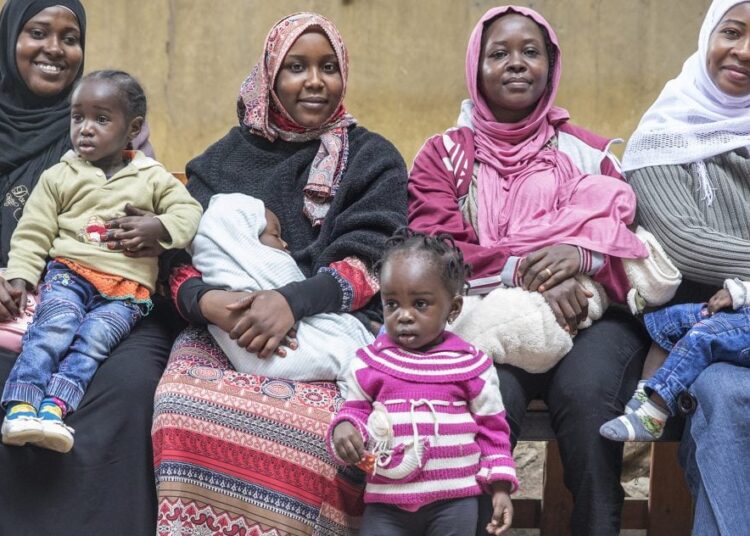Egypt is doing its best to ensure that refugees living on its soil lead a normal life, including having access to free education and health care services on an equal basis with Egyptians.
It also cooperates with the United Nations High Commission for Refugees(UNHCR) and the International Organisation for Migration (IOM)on the voluntary return or resettlement of refugees or asylum-seekersto a third country based on their desire, or at their request.
This prompted the UN High Commissioner for Refugees Filippo Grandi to express, during his meeting with President Abdel Fattah El Sisi two days ago, his appreciation to Egypt’s efforts in hosting a large number of refugees from different nationalities.
Grandialso asserted the UNHCR’s keenness on boosting cooperation with Egypt, underlining Egypt’s crucial role at the regional and international levels in this regard.
According to the Foreign Ministry Spokesman Ahmed Abu ZeidEgypt currently hosts 293.000 registered refugees and asylum-seekers.
In addition to the registered refugees, he said, there are about 9 million foreigners who fled to Egypt as a result of armed conflicts or political unrest in their countries.
‘All refugees – registered and unregistered – are granted residency, right to move freely and work,” Egypt’s Permanent Mission to the United Nations Office, World Trade Organisation and other international organisations, said.
It added that “they also receive basic services such as primary healthcare, pre-university education at Arabic-speaking governmental school on an equal basis with Egyptian citizens”.
With regard to medical services, refugees and asylum seekers enjoy the same primary health services and benefit frompublic initiatives launched President Abdel Fattah El Sisi.
Accordingly, 300.000 primary health care services were rendered to foreigners residing in Egypt through the basic care units and centers of the Ministry of health and Population, it said.
It added that refugees were also included to benefit from the presidential initiatives, “100 Million Health”, and “Hepatitis C Elimination”.
With regard to the educational services, the mission noted that the number of foreign students – including refugees – enrolled in Egyptian public schools reached so far 85.539 students.
In this respect, Mahmoud Bassiouni, member of the National Council for Human Rights, said that the services provided by Egypt to refugees stem fromits respect for its international commitments in addition to its geographical and historical neighborhood with brothers in countries suffering from internal conflicts.
He noted in press statements that Egypt treats refugees as guests and welcomed brothers, throwing away the idea of placing them in refugee centers or camps.
“Egypt bears the burden of providing a decent life for all – including foreigners – thus setting a model of respecting human rights, treating people fleeing from conflict zones well, and protecting their right to life,” he said.






Discussion about this post